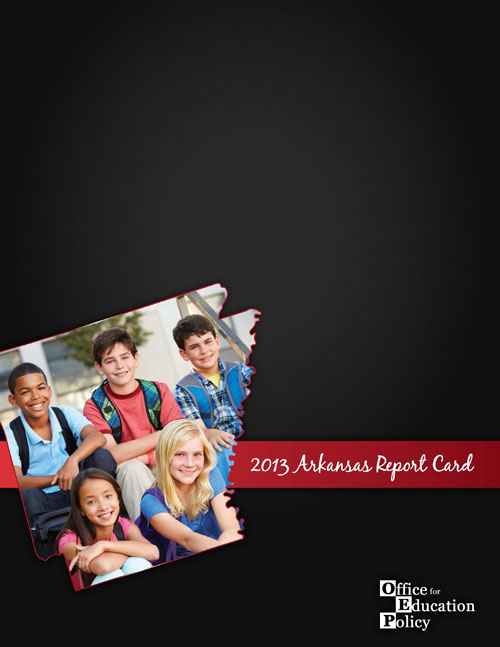Arkansas students have made many gains in achievement over the past six years that the Office for Education Policy at the University of Arkansas has issued its annual report card aggregating data from the state’s schools. The 16-page report card released by the OEP last week also describes what researchers consider several innovative educational programs operating in the state.
Gary Ritter, director of the OEP, a research office based in the College of Education and Health Professions, will make a presentation about the report to the Arkansas Joint House and Senate Education committees April 22 in Bentonville. Ritter holds an endowed chair in education policy at the U of A.
Graduate students and other staff of the Office for Education Policy compiled the report card that provides information about several educational indicators, including student test scores, graduation rates, pre-K enrollment and school finance.
“We hope this year’s edition will help further the conversation that surrounds our education system,” Ritter said. “The report card offers a snapshot of Arkansas education designed to provide information that teachers, policymakers and parents can find useful. We found plenty of bright spots and rising stars across the state, but we also know there is plenty of room for improvement.”
The report card is intended to offer information that policymakers, administrators and educators can use to make adjustments in response to the performance indicators.
Areas of improvement noted in the report card:
- Two-thirds of eighth-graders are proficient in math on the state Benchmark exam, compared to one-third in 2005.
- Nearly 40 percent of fourth-graders scored proficient in math on the National Assessment of Educational Progress, compared to only 14 percent in 2000.
- Seven of 10 high school juniors are proficient in literacy, compared to 46 percent in 2005 who scored proficient or better.
- About 84 percent of students who entered ninth grade in Arkansas schools in the fall of 2009 graduated on time in the spring of 2013, above the national average.
Areas of concern remain:
- Improvements on standardized assessments have slowed a bit over the past few years.
- Achievement gaps persist among traditionally disadvantaged subgroups of students. The OEP plans to issue a report in June focusing on these racial and economic achievement gaps.
Innovative programs the report card included in its "Spotlight" section:
- Arkansas Teacher Corps, a program of the College of Education and Health Professions that recruits high-performing, service-oriented people to teach in high-need school districts
- Schools of innovation that can be created under legislation passed by the 2013 General Assembly to create and implement innovative plans that increase academic performance by improving teaching and learning.
- The EAST (Environmental and Spatial Technology) Initiative that focuses on student-driven service projects that promote teamwork and technology and now is established in more than 200 schools in Arkansas.
- The New Tech Network model of schools that focuses on project-based learning and integrating technology into all classrooms and is now being operated in 14 schools in Arkansas.
Topics
Contacts
Heidi Wells, director of communications
College of Education and Health Professions
479-575-3138,
